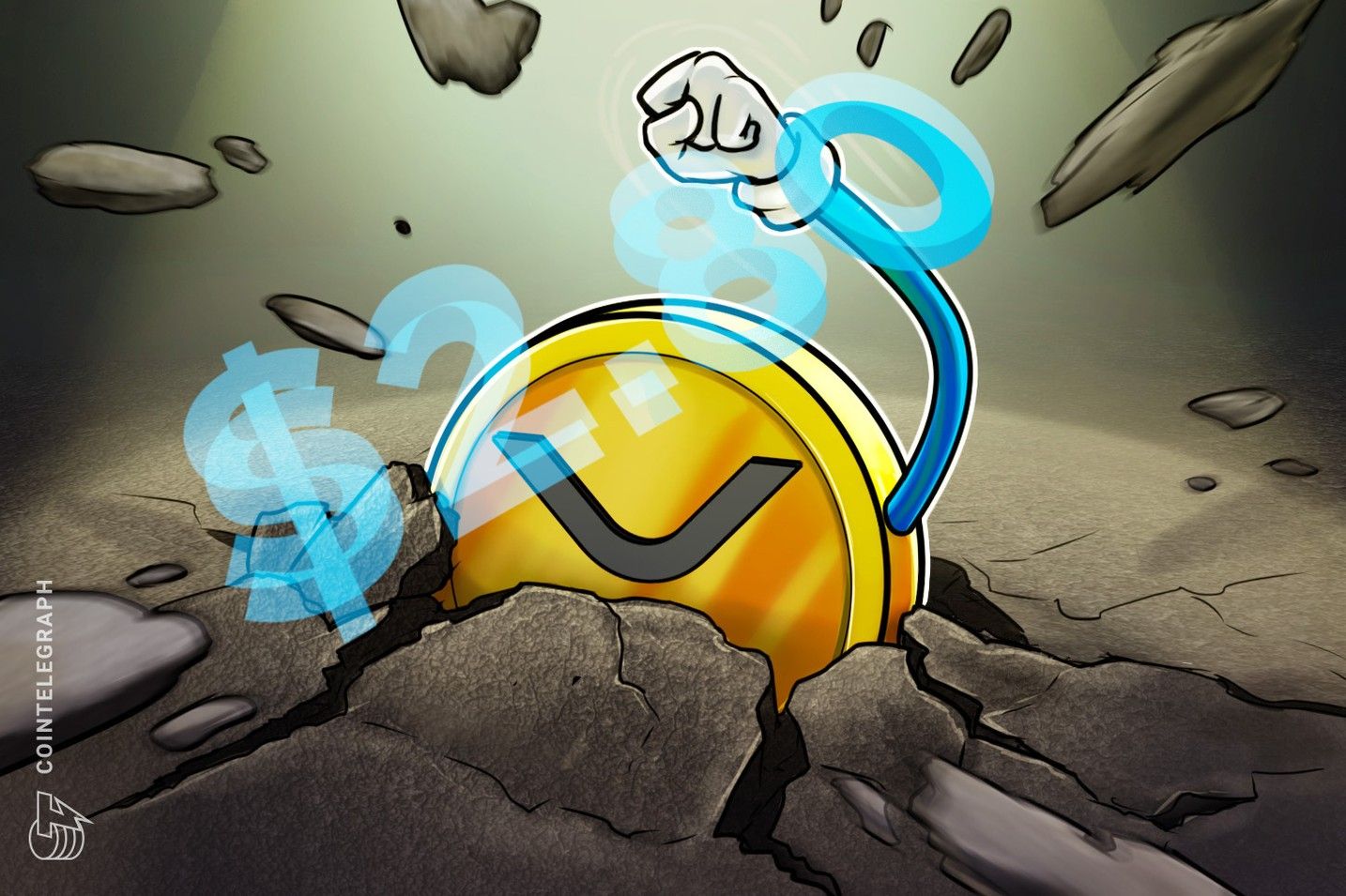Hong Kong stablecoins see the first batch of players exiting
At least four Chinese-funded financial institutions and their branches, including Guotai Junan International, have withdrawn from applying for a Hong Kong stablecoin license or have suspended related attempts in the RWA sector.
Original Title: "Exclusive | Hong Kong Stablecoins, First Batch of Players Exit"
Original Author: Zhou Zhou, Foresight News
The Hong Kong stablecoin and RWA market has seen its first batch of exits.
On September 29, sources told Foresight News that at least four Chinese-funded financial institutions and their branches, including Guotai Junan International, have recently withdrawn from applying for Hong Kong stablecoin licenses or suspended related attempts in the RWA sector out of prudence.
Morgan, an executive close to Hong Kong financial institutions, told Foresight News that some Chinese banks have adopted a more cautious strategy in the stablecoin sector under regulatory guidance, with several institutions choosing to delay their entry. Industry insiders pointed out that the Hong Kong Monetary Authority set two important deadlines for market participants: intentions to apply had to be expressed by August 31, and formal applications submitted by September 30. This means that institutions that have not submitted applications by tomorrow will miss out on the first batch of stablecoin licenses.
In terms of RWA (Real World Assets), some Chinese institutions have also suspended related business attempts due to regulatory guidance. Lee, a practitioner close to Chinese securities firms, told Foresight News that several institutions, including Guotai Junan International, have suspended RWA-related business in Hong Kong, and Guotai Junan's RWA business has been paused. Lee also revealed that another Chinese securities firm listed on the A-share market has also received notice to stop its RWA attempts in Hong Kong.
Within the industry, some practitioners believe that stablecoins are also a subcategory of RWA. The essence of USD stablecoins is the tokenization of the US dollar, a real-world asset.
RWA (Real World Assets) refers to the tokenization of assets in the real world. Currently, common examples include US stock RWA (stock tokenization), US Treasury RWA (US Treasury tokenization), and gold RWA (gold tokenization). As an emerging industry, RWA has developed particularly rapidly in the US. For example, Robinhood, the largest internet broker in the US, has attempted to launch stock RWA (stock tokenization), tokenizing private equity of well-known companies such as SpaceX and OpenAI, allowing ordinary retail investors to buy tokens representing equity in unlisted companies, attracting global attention in the financial industry.
In the US, stablecoins and RWA are booming, with giants such as Paypal, Robinhood, and Nasdaq entering the field; in Europe, nine major European banks have announced plans to jointly launch a compliant euro stablecoin next year. In Hong Kong, the launch of a HKD stablecoin is imminent, with more than 77 companies having submitted intentions to apply for a stablecoin license. Meanwhile, under regulatory supervision, Hong Kong's RWA has been piloted in the primary market for over two years, with 30 to 40 projects currently running.
However, a large number of mainland institutions from banking, securities, and internet industries have rushed in, making the Hong Kong stablecoin and RWA sectors appear overheated. Against the backdrop of rising market and public opinion, mainland regulators have chosen to cool things down.
The Hong Kong stablecoin and RWA sectors have seen their first batch of exits.
Partial Cooling
Before and after the official implementation of the Hong Kong Stablecoin Ordinance, the market has already shown signs of cooling, though only partially.
In early August, the author went to Hong Kong to attend a conference, where several financial institutions and internet companies announced their applications for stablecoin licenses and actively entered the RWA sector. However, almost overnight, all financial institutions, internet companies, and institutions entering the Hong Kong stablecoin sandbox canceled external interviews and all public discussions about stablecoins.
On August 1, 2025, Hong Kong officially implemented the Stablecoin Ordinance, establishing the world's first comprehensive legal framework for stablecoin regulation. In the days leading up to the official implementation, a guidance document was distributed to financial institutions.
Foresight News learned from sources that mainland regulators conveyed relevant guidance to financial institutions, requiring them to remain low-key in stablecoin-related business and statements, prohibiting excessive publicity or creating media hype, and to strictly manage internal research and public opinion.
"You can do it, but you can't talk about it," the source said.
According to a Caixin report on September 11, a source revealed that Hong Kong's stablecoin business is still in its early stages and its future direction is unclear. Excessive participation by Chinese institutions may bring risks, so risk isolation is needed first. Another senior financial industry insider said that previously active Chinese banks and central SOEs' Hong Kong branches, such as Bank of China Hong Kong, Bank of Communications Hong Kong, China Construction Bank (Asia), and CCB International, may delay submitting their Hong Kong stablecoin license applications. Among them, Bank of China Hong Kong is one of the three note-issuing banks in Hong Kong.
Morgan explained the regulatory stance to Foresight News: First, Chinese institutions involved in Hong Kong crypto business are prohibited from operating domestically and must be cautious in participating in virtual asset-related business; second, mainland capital inflows are prohibited; third, the parent companies behind Chinese financial institutions must bear compliance responsibility.
In summary, mainland regulators are currently mainly concerned about Chinese financial institutions and internet companies rushing into the Hong Kong crypto market, and have already guided some Chinese institutions to exit stablecoin and RWA businesses. Meanwhile, local "non-Chinese financial institutions" in Hong Kong are still orderly conducting crypto-related business.
The pace of stablecoin license issuance in Hong Kong may be similar to that of crypto exchanges. For example, only one or two institutions received the first batch of VATP crypto exchange licenses in Hong Kong, while the second batch had seven or eight.
A source told Foresight News that by the end of the year, several crypto exchanges such as Futu and Victory Securities will officially operate in Hong Kong. Companies that obtained the first batch of VASP licenses, such as HashKey, officially launched and began offering trading services in August 2023, which is now over two years ago.
When and Where Will It Heat Up?
Since 2025, the entire US crypto market has been heating up, from exchanges, ETFs, stablecoins, RWA to DAT, with no shortage of hot topics. However, Hong Kong has its own pace.
Morgan said: Hong Kong's RWA pilot in the primary market has been running for more than two years, with 30 to 40 projects currently operating, most with a scale of tens of millions of HKD. "In theory, the Hong Kong RWA secondary market can be done, and some institutions may have already applied," Morgan said.
The same goes for stablecoins in Hong Kong. The Stablecoin Issuer Sandbox was officially launched on March 12, 2024, and has been running for about a year and a half. After the stablecoin license ordinance took effect, the HKMA received 77 intentions to apply for stablecoin licenses in August. Some insiders predict that the first batch of stablecoin licenses will be issued by the end of the year or early next year.
The cooling of the Hong Kong crypto market happened overnight, and likewise, the partial or sudden heating up of the Hong Kong crypto market may also happen in an instant.
Changes in the international landscape are also rapidly affecting Hong Kong's crypto industry. The progress of stablecoins and RWA in the US, Europe, South Korea, and other regions is also influencing Hong Kong's progress. On September 25, nine major European banks jointly launched a euro stablecoin governed by the EU's Markets in Crypto-Assets Regulation (MiCA). Participating banks said the plan would provide a true European alternative to the US-dominated stablecoin market and help enhance Europe's strategic autonomy in payments. This stablecoin is expected to be issued for the first time in the second half of 2026.
DAT (Digital Asset Treasury Company) is also a sector in which Hong Kong has yet to make a move. For example, "Jack Ma crypto concept stock" Yunfeng Financial purchased 10,000 ETH in the open market on September 2, listing ETH as an investment asset in its financial statements, and stated that in the future, besides Ethereum, it also plans to explore including diversified mainstream digital assets such as BTC and SOL in its strategic reserve assets. In the past month, Yunfeng Financial's stock price has risen by as much as 65.09%.
In the US, sectors such as ETF, stablecoins, RWA, and DAT have all heated up, with market enthusiasm running high; in contrast, Hong Kong is still taking a cautious and restrained approach in similar sectors.
Exits and Entrants
There are many entrants and many exits.
From the first batch of crypto exchanges such as HashKey and OSL, to participants in bitcoin spot ETFs such as China Asset Management, and now to stablecoins, RWA, and DAT, there are so many sub-sectors in the crypto field that a large number of financial institutions and internet companies are constantly pouring in, hoping to get a share of the pie.
The VASP license has attracted a group of brokerage firms, such as Futu Securities, Tiger Brokers, and Victory Securities; bitcoin and ethereum spot ETFs have attracted a group of wealth management institutions, such as China Asset Management and Bosera Funds; stablecoins have attracted a group of banks, such as BOCI and Standard Chartered; DAT has attracted a group of Hong Kong-listed companies and has been included in their balance sheets, such as Yunfeng Financial... The crypto industry is fully integrating into the entire Hong Kong financial system.
Temporary exits do not mean permanent defeat. Just as the internet changed the financial industry, now almost all brokerages are internet brokerages, and all banks are internet banks. The integration of crypto and finance may be deeply boundless in the future. The first batch of entrants will bear the greatest risk and also reap the greatest rewards.
Disclaimer: The content of this article solely reflects the author's opinion and does not represent the platform in any capacity. This article is not intended to serve as a reference for making investment decisions.
You may also like
ETH traders ramp up positioning, setting a price target at $3.4K

BTC price pauses at $92K: Can Bitcoin avoid another crash?

Crypto bull market signal: ERC-20 stablecoin supply preserves $185B record

Five XRP charts suggest a short-term price rally to $2.80 is next

